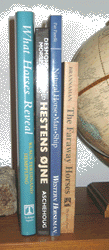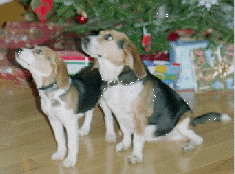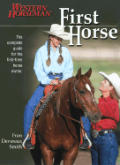|
Fine Horse Books for the Novice Owner or Rider
|

|
To handle or ride a horse safely and with some degree of expertise
you need to know what makes it tick.
After all since that horse is likely bigger, stronger, and faster than you,
by a bunch,
it's nice what to do, when, and why.

Having learned some things about why horses act as they do, (and 's always more to be learned), one of these days I need to turn our attention to our beagles. They have a significant selective hearing characteristic, the solution to which might be found in a "Beagle 101" book, if such a book exists.
Here's three good ones.
- The first horse book gives the basics of first time ownership and/or riding written by a horsewoman who is truly an expert in horsemanship.
- The second book is contains everyting you ever wanted to know about horses and then some. It's been around awhile, through several editions, and just keeps getting better.
- The third focuses on horse care, particularly important for a first time horse owner.
It answers questions such as Who can help you find a horse? Where will you keep your horse? How do you test-ride a prospect? What do you want in a horse, and what price are you willing to pay?
With hundreds of illustrations and a detailed, easy-to-understand text, this new edition of The Whole Horse Catalog and could be referred to as an "equine bible". It addresses most everything someone new to the world of horses needs to know to get started. even covering advances in nutritional thinking and sources on the World Wide Web. It's the one-stop book for all your equestrian needs.
This would make a fine gift as a first book on horse care. An attractive book, with excellent graphics, this book covers all major aspects of caring for a horse.
Topics discussed include basic care, daily routines, stabling, grooming, feeding, health, first aid, and types of tack and care.
The author is an English veterinarian and, published in Great Britain, the illustrations reflect the english style. The book is not about riding or training however, so this is of no consequence to the western rider. It is about horse care, and the English know more than a bit about horses. This is one of the horse books that we do not hesitate to recommend, having a copy ourselves.

|
Horseinfo.com
hard to find and breed-specific equine publications being their specialty.

